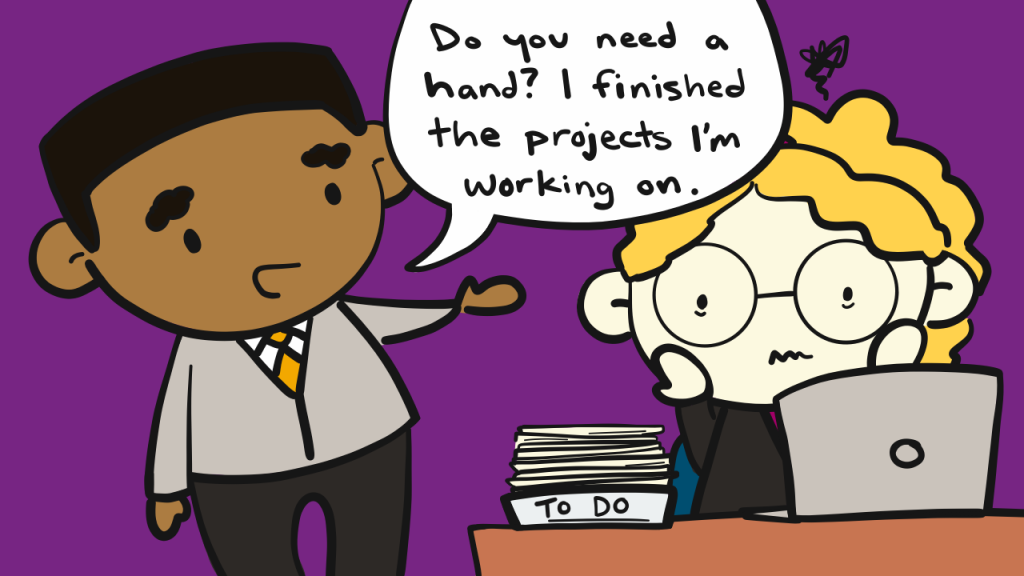It happens. Perhaps you downplayed your accomplishments during the interview enough to slip through the screening process. Now you’re paying the price—growing cynical in a position you thought you graduated from years ago. Or it could be you started out on the right foot, once upon a time. But now you’ve outgrown your position and need to revisit your career goals. Whatever the reason, being overqualified in your job can be stressful.
Overqualified versus entry level
It is important to recognize the difference in being overqualified and starting out. They can often feel the same. Starting out in a career is about developing, or showing, the grunt level skills, character traits, and work ethic required to succeed as both a professional, and as a professional in your field.
If you are entry-level, your skills and education level may far exceed the tasks that you are given, but it doesn’t mean you are overqualified. It means you haven’t developed enough trust from the gatekeepers in your company, or industry, to be given higher responsibility. As an entry level professional, with a newly minted degree, it may be hard to understand the value of experience. But it is important, and in five to ten years, you will look back and understand.
Being overqualified, however, is dangerous to your career. Your skills are not growing, while the skills of your industry colleagues are. You run the risk of becoming irrelevant to your industry. If you think you may be overqualified, here are few signs you just might be, and what to do about it.
-
Sign you’re overqualified: You’re bored all the time
Possible Symptoms:
- You are constantly looking for more work to do, because you easily breeze through your job duties.
- The boss apologizes to you for the job, saying things like, “Well, this position is really designed more for entry-level graduates.”
- You find yourself inventing job duties and re-imagining processes.
- You start to grow cynical and surly, and slack off on your work. Your boss notices and looks the other way.
- You discuss your lack of engagement with your boss. They completely understand, but don’t do anything about it. They need you in that position and the prospect of training someone else to do as well as you is daunting.
Possible Solutions:
- Ask for more responsibilities, or to be cross-trained in another department.
- Offer to help others with their work. Is a colleague always frazzled and behind while you’re Facebooking? What can you do to make their load easier, that is not necessarily your job?
- Network. Never underestimate the power of making connections. You never know who you might meet. You may be an administrative assistant, processing paperwork at an insurance agency, but chat up your clients, learn their stories. You just might unwittingly make crucial, life-changing connections.
- Create training manuals for your successor. Eventually, you will leave the job. Make life easier for your replacement, by writing a manual describing everything you do. This could be an invaluable reference tool for your replacement, especially if you won’t be there to supervise the transition. It will also give you something to keep your mind busy while you breeze through your tasks.
-
Sign you’re overqualified: You know more than your boss
Possible Symptoms:
- Your boss asks you for advice on matters above your pay grade, to where you feel like telling them, “I don’t know. That’s why you’re in that chair, and I’m not.”
- You’re very familiar with their “light bulb,” face, when you tell your boss something that is obvious to you.
- You boss passes your ideas on to their own boss (giving you proper credit, of course). The higher boss likes the ideas, but nothing ever comes of them, because it would breach protocol for you to drive the initiatives.
- You get the feeling that your boss is intimidated by you, and even seems hesitant to issue you directives.
Possible Solutions:
- Soul search for a new possibility. Maybe you’ve maxed out working for others and it’s time to start working for yourself. Start thinking about ways that you could start your own company or business.
- Learn what you can from your supervisor. If you are that good at your job, chances are you have his or her attention. Also if you are that good, it won’t be long before you have your boss’s job, whether it be there, another company, or working for yourself. Spend more time with your boss, asking questions, learning aspects of their job. Seeing the company from your boss’s perspective can be a much different view. You could surprise yourself with how much you don’t know. This can lead you to valuing your supervisor more and strengthening your relationship, as opposed to you feeling like an entitled know-it-all.
-
Sign you’re overqualified: You’re not growing, because you set the bar
Possible Symptoms:
- You know that there are ways you can grow as a professional. But, there is no one to model or learn from because you are the model.
- They hold a productivity contest, and no one participates because it is the understood fact that you will win without even trying,
- You don’t feel challenged, or engaged. The whole job feels pointless, like going around in a circle. But everyone treats you like a celebrity.
- You’ve figured out how all the moving pieces in the company fit together—down to talent, personality, and even management ego. You understand exactly where all the cracks in the organization are, and know why, at least in your mind, the company will never survive.
Possible Solutions:
- Start an aggressive job search. Start looking for opportunities where you feel engaged.
- Talk to your supervisor about moving to a different department, or new position.
- Take classes to update your skill set, or look into being re-tooled for a new field.
- Join a professional organization for networking purposes.
Being overqualified can be a difficult experience, but with the right attitude, and some strategic thinking, you can get your career back on track.



